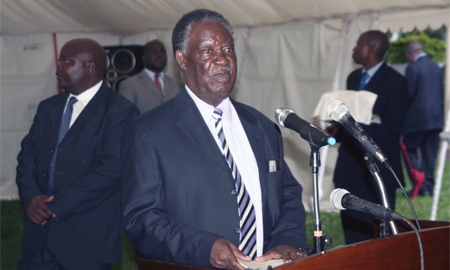
Currently heading Zambia’s government is leader of the Patriotic Front (PF), Mr. Michael Sata, elected into office in September 2011. Sata became Zambia’s fifth President, ending 20 years of dominance by the Movement for Multiparty Democracy (MMD).
Michael Sata served as an MMD Minister throughout the 1990s before leaving in 2001 to create his own opposition party, the Patriotic Front. That year, he gathered just 3.4% of votes, but subsequently leaped to prominence. By 2011, the PF was characterized as a pragmatic no-nonsense party, distinguishing itself from the elitist party it replaced, and other smaller opposition parties that it outshone.
Today, Zambia boasts a firmly consolidated democratic political system. As part of his inclusive approach to government since coming to power, Sata even appointed opposition MPs to positions in public office. And compared with many of its neighbours on the continent, its stability and transparency has made the country a reference for good governance in Africa. “I am allergic to corruption,” says Sata.
President Sata firmly believes that no country can achieve its aspirations in isolation. Thanks to large mineral revenues and an improved investment climate, an increasing number of companies are tapping into Zambia’s diverse economic sectors. Although copper is obviously the most valuable export, tourism, infrastructure development and telecommunications provide ample opportunities for international investors.
Zambia's economy has experienced strong progress in recent years, with real GDP growth in the 2005-11 period, averaging over 6% per year. In 2012, it is forecast to continue at a robust 6.3% before picking up to an average of 6.8% in 2013-16, driven by strong developments in the agriculture, mining, construction and tourism sectors.
Sata welcomes foreign investment: “In Zambia, we are very friendly to investors. If the investors are transparent, you will notice that Zambia is also be ready to be transparent.” The government is pursuing a zero-tolerance policy against corruption, whereby local and foreign investors are treated equally.
The country is also rich in natural resources, with copper accounting for three-quarters of its export earnings. “Today, Zambia is the largest copper-producing African country. But there is talk only of copper. Very few people know that we produce cobalt in Africa, and that we are also the largest producer of emeralds and several semi-precious stones,” says Sata.
Zambia has signed double taxation agreements with Germany and a number of other European, North American, African and Asian countries. Consequently investors from such nations can offset tax payment in one of the two countries against tax payable in the other.
0 COMMENTS